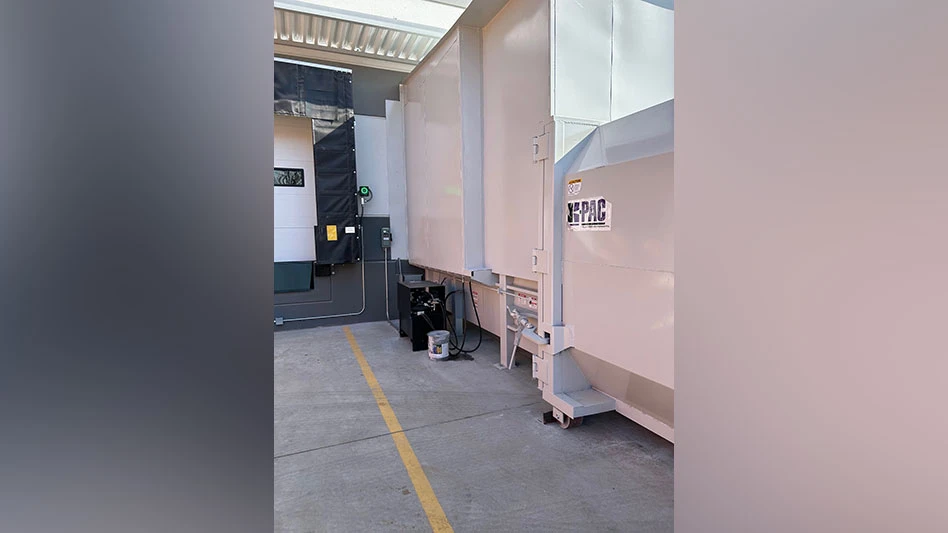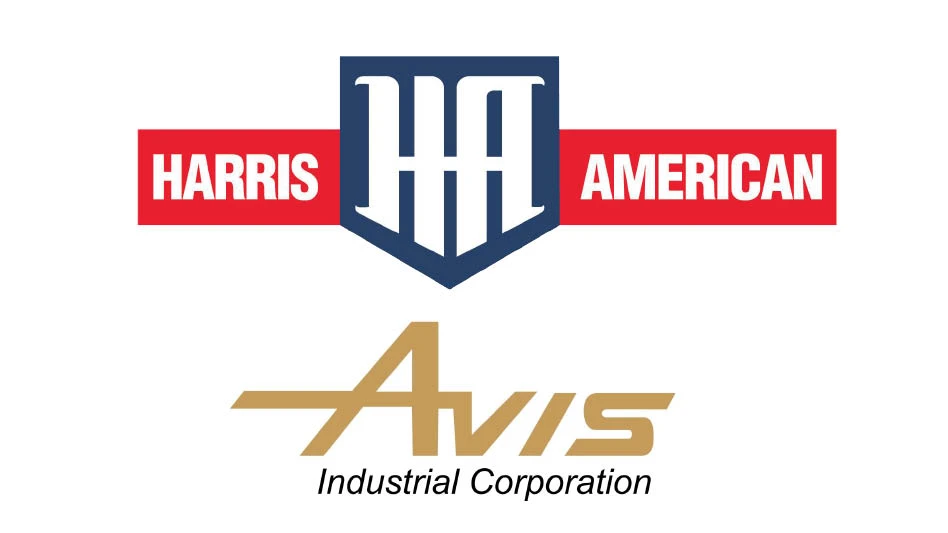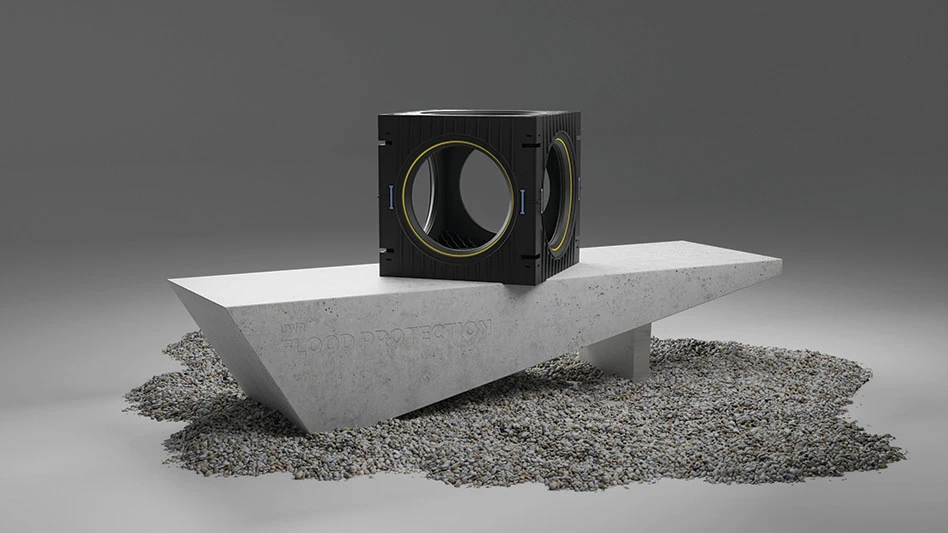
In business, it’s not always the big that eat the small but the fast that
Action Shred was started by brothers Joel and Craig Litman in 2003. The brothers, along with their father, Stan, opened Texas Recycling—a recycler of paper, old corrugated containers (OCC), aluminum used beverage containers (UBCs), metals, old newspaper (ONP), sorted office paper (SOP) and other commodities—in 1992.
The family’s experience in recycling made the move into the secure destruction sector a natural progression, says Dennis McCaslin, business development manager at Action Shred. With already-established trucks, equipment, employees and a physical plant, as well as with a somewhat built-in customer base, many of the entry barriers into the market were cleared, he says.
“Meeting the additional security requirements of the document shredding industry was simply part of that evolution,” McCaslin says.
He adds, “Our shredding service is often an attractive added solution for our recycling customers who need a trusted vendor for their confidential office documents. The relationship is already in place on the recycling side, so the recommendation of our shredding service to the customer becomes an easy conversation.”
Business as usual

Action Shred performs on-site mobile shredding at businesses’ facilities using purpose-built trucks. The company also offers off-site, facility-based shredding at its secure plant in Dallas. Action Shred, which has 16 employees, primarily securely destroys SOP. It also provides end-of-use services for outdated office electronics and product destruction for a wide range of materials.
One Shred-Tech truck in its fleet is capable of shredding paper and hard drives at the same time. The truck’s clamp-and-lift system can lift a 300-pound bin of paper and tip it inside the shredding compartment for destruction. At the same
The mobile and facility-based destruction methods are recorded by video cameras, and customers can view their destruction jobs. At Action’s facility, bins of paper are tipped onto a conveyor line. The paper is fed to an industrial shredder from Ameri-Shred Corp., Alpena, Michigan, and baled using a machine from American Baler Co., Bellevue, Ohio.
All the shredded paper is baled and then recycled at paper mills, while shredded hard drives and other electronics are sent to downstream ISO 14001- and R2 (Responsible Recycling Practices) Standard-certified vendors.
“Our goal is to consistently deliver a high level of service with a personal touch. We don’t really compete against the Iron Mountains and Shred-its of the world, and, fortunately, we don’t have to. It’s really about response time, and doing what we say we’re going to do.” – Dennis McCaslin, Action Shred of Texas
Reliable response time
Action Shred serves the North Texas region, including the Dallas/Fort Worth Metroplex. In this area, many of the competing secure destruction companies are certified to the Phoenix-based National Association for Information Destruction’s (NAID’s) AAA Certification Standard. Offered on a voluntary basis to all NAID member companies, maintaining the certification requires companies to undergo annual audits—announced and unannounced—covering a range of categories of evaluation, from reviewing employees’ files to building security, among other requirements, McCaslin says.
While the certification offers “instant credibility,” he says the company still must find ways to separate itself from competitors. “It doesn’t really set us apart from our competitors anymore because, honestly, most shredding vendors in our region are NAID AAA certified,” McCaslin says. “We have to find other ways to distinguish ourselves from other NAID vendors.”
One way Action Shred stands out is through its response time. The company prides itself on its commitment to not let the phone go to voicemail. “If the phone rings more than three times and it isn’t picked up, everyone is diving from their desks to be sure the phone is answered and the customer is talking to an employee who can help them immediately,” he says.
McCaslin continues, “In our industry, our goal is to consistently deliver a high level of service with a personal touch. We don’t really compete against the Iron Mountains and Shred-its of the world, and, fortunately, we don’t have to. It’s really about response time, and doing what we say we’re going to do.”
Action Shred’s customer base is diverse. The company serves mostly the medical and legal industries, with a high concentration of its legal business in downtown Dallas. Serving about 300 customers per month, Action Shred also works with municipalities and with financial, manufacturing, technology, logistics and real estate businesses. Most of its clients are commercial accounts; McCaslin says the company billed six residential customers in March 2018.
AN established industry

Beyond the response time of picking up the phone promptly, McCaslin says maintaining relationships with customers is important. He describes how some larger commercial customers are moving to third-party vendor management services to oversee the day-to-day operations of their vendor contracts. The personal touch and relationship
McCaslin says, “That dynamic dramatically impacts the relationship and communication we used to have with our customers and transfers it to the vendor management company.”
Another challenge has been avoiding the “commodity curse,” he says. If a business is viewed as a commodity and not a service, the business model is reduced to the price of the service in the eyes of prospective clients. “Well, you do the same thing they do, why are you higher [in cost] than they are?” McCaslin says is a typical question when this mindset is in play.
Smaller operators that used to enter the market with cut-rate service fees on the front end to capture quick market share and to make money selling the paper on the back end have come and gone.
“That business model was OK if paper prices were high but did not work if they dropped dramatically,” McCaslin says.
When the Litmans opened Action Shred of Texas 15 years ago, the information destruction industry was in its infancy. Today, it is an established industry. “Any company with a compliance officer is likely to view secure information management as a critical function of their business,” McCaslin says.
The acquisition of smaller, regional document destruction companies is cyclical, McCaslin says. The remaining national secure destruction firms bundle this service with medical waste or records storage services. “The branding of companies has become more diverse to appeal to a broader customer base,” he says.
Growth trajectory

Appealing to a broader customer base is an area of growth for Action Shred of Texas. McCaslin says the family company is aiming to be more strategic in developing specialized services that would be appealing to municipalities, school districts
Additionally, product destruction has been a growing revenue stream for Action Shred for the last several years.
“Many shredding companies don’t want to mess with it, but we certainly want to,” McCaslin says of product destruction.
He continues, “It’s about highlighting the need for the destruction of proprietary material that they may view as a lower priority on their risk-management agenda and show them there’s a potential risk in putting it into the dumpster.”
As a result, Action Shred plans to invest in new, high-volume equipment that can destroy a variety of materials.
Customer retention is a critical part of Action Shred’s future plans. “It costs far more to obtain a new customer than it does to keep a current one,” McCaslin says. “You keep customers by consistently delivering a service experience that is reliable and convenient with a personal touch. That’s where you start.”

Explore the May 2018 Issue
Check out more from this issue and find your next story to read.
Latest from Recycling Today
- Enfinite forms Hazardous & Specialty Waste Management Council
- Combined DRS, EPR legislation introduced in Rhode Island
- Eureka Recycling starts up newly upgraded MRF
- Reconomy Close the Gap campaign highlights need for circularity
- Nickel carbonate added to Aqua Metals’ portfolio
- EuRIC, FEAD say End-Of-Life Vehicle Regulation presents opportunity for recyclers
- Recyclers likely to feel effects of US-China trade war
- BCMRC 2025 session preview: Navigating battery recycling legislation and regulations





